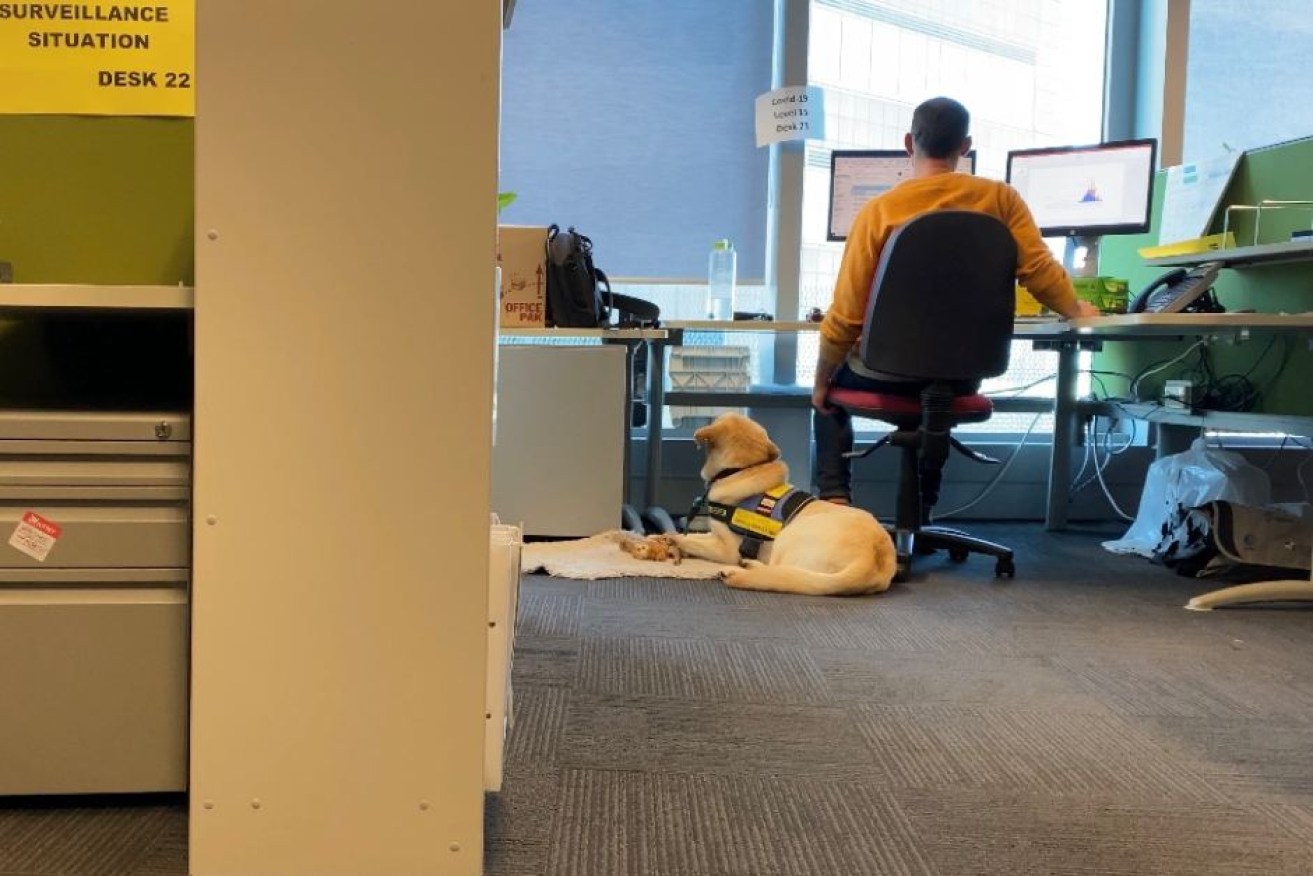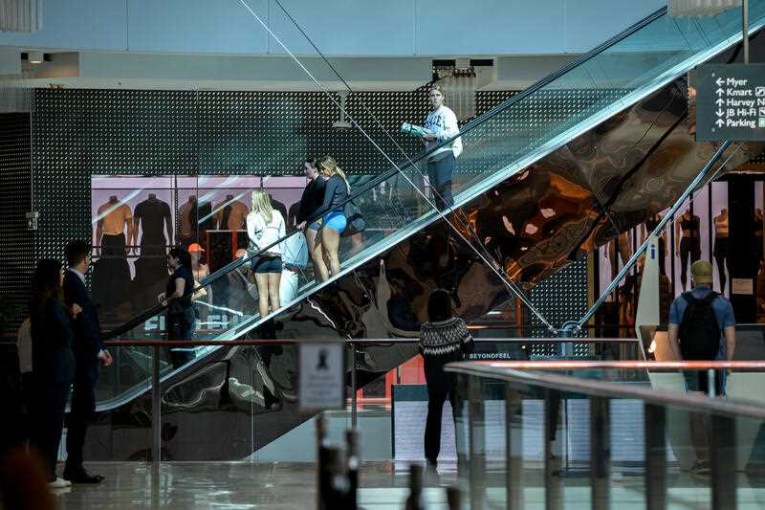Meet the contact tracers fighting coronavirus in Australia

Epidemiologist Dr Charles Alpren is part of the contact tracing team in Melbourne. Photo: ABC News
How do you track a virus you cannot see?
“That is something we do all the time,” Victoria’s deputy chief health officer Dr Annaliese van Diemen told 7.30.
“It is a bit like detective work.”
Known as contact tracers, the people who do this work are rarely in the spotlight.
Employed by state health departments, contact tracers are usually asked to investigate measles and HIV.
They are highly skilled at finding where infected people have been and who they crossed paths with.
And their role has become vital in slowing the fast-moving coronavirus pandemic.
Spread across six floors in a skyscraper in Melbourne’s CBD, a team of about 30 has become nearly 1000.
“This is something we have teams of people doing across the country every day of the week,” Ms van Diemen said.
“They go all the way back, 14 days, to where the patient may have acquired the disease and then they go forward from when the person became sick to look at all of the places they may have been.”
Contact tracers have already identified super spreaders: Infected people who have passed coronavirus on to up to 40 others.
The latest super-spreader worked in hospitality.
“That one person passed it on to the vicinity of 25 people, who then passed it on to 15 people,” Ms van Diemen said.
“More connections are being made.
“This virus doesn’t seem to really have a consistent modus operandi, so to speak, so there are some people who, for reasons unknown to all of us, seem to be more infectious than other people.”
Tracing through workplaces, restaurants, taxis, weddings …

Nectaria Tzimourtas and her team try to track the exact movements of people infected with coronavirus. Photo: ABC News
Nectaria Tzimourtas leads the Victorian team of contact tracers.
On Monday, she was on the phone trying to connect the dots.
A husband is infected. His wife is not.
The couple returned from a cruise and are locked in a small hotel room for a long 14 days.
She asks for an address. An arrival date.
“Any symptoms?” she calmly asked.
A call can take 20 to 45 minutes depending on how unwell the person is.
Shame, anxiety and bad memories are major barriers Ms Tzimourtas needs to overcome so she can track someone’s exact movements.
“If they’re a contact of somebody we think has been exposed, we’ll get those details through lots of different means – through the case if they know them, through the workplace, through a restaurant or a cafe if they’ve been dining at the same time, sometimes through wedding organisers, and we have gone through taxis and Ubers and limousine drivers before as well to try and identify who may have crossed over.”
Workdays are long: 12 to 17 hours.
“When we got our first case my first weekend, I worked 20 hours in 24,” Ms Tzimourtas said.
“People are listening to the restrictions.
“I guess if we lift them too early we’re just going to see things skyrocket. That’s why it’s important people stay at home.
“I think we’re doing really well. I’m getting emotional.
“I’m really proud. Things could be a lot worse.”
‘Extraordinarily busy and extraordinarily intense’

Dr Charles Alpren said his foster trainee seeing eye dog Pippin has been doubling as an emotional support animal for the team. Photo: ABC News
Also part of the team is epidemiologist Dr Charles Alpren, who previously worked in Sierra Leone on the Ebola response, initially as a doctor then with the World Health Organisation.
Usually, he has three months to analyse health data looking for patterns.
These days, he has seven hours.
“Things have been extraordinarily busy and extraordinarily intense,” Dr Alpren said.
“We are working very long hours and we feel a sense of responsibility that the data we’re seeing and the analysis we’re doing is genuinely informing decisions that are having a huge impact on people’s lives.”
Dr Alpren’s blonde foster puppy Pippin, which he is training to be a seeing eye dog, lies under his desk on the 15th floor.
“I have to admit, over the last couple of months he has been doubling a little bit as an emotional support animal,” Dr Alpren said.
“He’ll often find the desk of the person feeling the most stressed and just cuddle up underneath.”
‘This is fundamentally changing our society’

Dr Annaliese van Diemen said the contact tracers are like detectives. Photo: ABC News
Ms van Diemen likens the pandemic to war.
“We in here feel like we are preparing for battle,” she said.
“This is fundamentally changing our society and we are asking things of people in society, in our community, that we have not asked of them ever before in living memory – other than wartime.”
It is highly likely more advanced technology will be needed and rolled out because “no amount of people [contact tracing over the phone] will work” if you’ve got tens of thousands of new cases.
Singapore’s TraceTogether mobile app, which tracks movements from sick people using Bluetooth signals, is an option on the table.
“Where to next is a question on everyone’s lips,” Ms van Diemen said.
“But it’s important to understand, this virus hasn’t changed just because we’ve got lower cases than we had two or three weeks ago.
“There still is no vaccine at this point in time. There still is no treatment.
“We still have a population who is, for the most part, susceptible.”
–ABC








